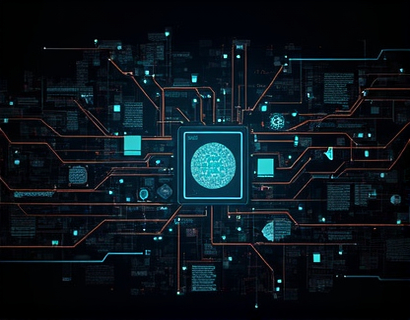Cryptocurrency Security: Tailored Elite Defense for HNWIs, Celebrities, and Entrepreneurs in the Digital Age
In the rapidly evolving digital landscape, high-net-worth individuals, celebrities, and cryptocurrency professionals face unique and sophisticated cyber threats. The rise of cryptocurrencies has introduced new dimensions to financial security, necessitating advanced defense strategies and operational security measures. This article delves into the critical aspects of cybersecurity tailored for these vulnerable yet influential groups, focusing on protecting digital assets and personal data from advanced cyber threats.
Understanding the Threat Landscape
The cryptocurrency sector, while revolutionary, operates in a space that is inherently vulnerable to cyber attacks. The decentralized and pseudonymous nature of cryptocurrencies makes them an attractive target for malicious actors. Hackers, cybercriminals, and state-sponsored entities continuously develop new tactics to breach security measures. For HNWIs, celebrities, and entrepreneurs, the stakes are particularly high, as their digital assets can represent significant wealth and personal information.
One of the most prevalent threats is phishing attacks, where attackers trick individuals into revealing sensitive information or credentials. Advanced phishing techniques, such as spear-phishing, are increasingly sophisticated, making them difficult to detect. Additionally, ransomware attacks targeting cryptocurrency exchanges and wallets have become more common, posing a direct threat to the integrity and availability of digital assets.
Tailored Cybersecurity Solutions for High-Risk Individuals
Given the unique risks faced by HNWIs, celebrities, and cryptocurrency professionals, it is essential to implement tailored cybersecurity solutions. These solutions go beyond standard security measures and are designed to address the specific vulnerabilities and operational needs of these groups.
For high-net-worth individuals, a comprehensive security strategy should include multi-factor authentication (MFA) for all financial and personal accounts, regular software updates, and the use of secure, encrypted communication channels. For celebrities, operational security (OPSEC) becomes a critical component, involving the management of personal information and public exposure to minimize the risk of targeted attacks.
Cryptocurrency professionals, including developers, traders, and exchange operators, require a different set of security measures. These professionals often handle large volumes of transactions and sensitive data, making them prime targets for insider threats and external attacks. Implementing robust access controls, monitoring systems, and regular security audits are essential to maintaining a secure environment.
Advanced Defense Strategies
To effectively protect against sophisticated cyber threats, advanced defense strategies must be employed. These strategies include:
- Zero Trust Architecture: This approach assumes that no user or device is inherently trusted, regardless of their location or network. Every access request is verified, reducing the risk of unauthorized access.
- Behavioral Analytics: By monitoring user behavior and identifying anomalies, organizations can detect and respond to potential threats in real-time. This proactive approach helps in identifying insider threats and unusual activities that may indicate a breach.
- Blockchain Security Enhancements: For cryptocurrency-specific security, implementing advanced blockchain security measures such as multi-signature wallets, cold storage solutions, and secure key management systems can significantly enhance the protection of digital assets.
- Incident Response Planning: Having a well-defined incident response plan is crucial. This plan should outline the steps to be taken in the event of a security breach, including containment, eradication, and recovery processes. Regular drills and updates to the plan ensure readiness and effectiveness.
Operational Security Measures
Operational security (OPSEC) is a critical component of a comprehensive cybersecurity strategy. For HNWIs, celebrities, and cryptocurrency professionals, OPSEC involves managing and protecting sensitive information and operations to prevent unauthorized access and exposure.
Key OPSEC measures include:
- Physical Security: Ensuring that physical access to devices and facilities is restricted. This includes secure storage for hardware wallets, biometric authentication for devices, and secure locations for server rooms.
- Data Encryption: Encrypting data both at rest and in transit is essential. This protects sensitive information from being intercepted or accessed by unauthorized parties.
- Network Segmentation: Dividing the network into segments can limit the spread of an attack and reduce the attack surface. This involves isolating critical systems and data from less secure parts of the network.
- Regular Security Training: Educating employees and individuals about security best practices and the latest threats is vital. Regular training sessions and simulations help in building a security-aware culture.
Leveraging Technology for Enhanced Security
Advancements in technology offer powerful tools to enhance cybersecurity for high-risk individuals. Some of these technologies include:
1. Artificial Intelligence (AI) and Machine Learning (ML): AI and ML can be used to analyze vast amounts of data to identify patterns and anomalies that may indicate a security threat. These technologies can automate threat detection and response, reducing the workload on security teams.
2. Quantum Cryptography: Quantum key distribution (QKD) provides a method for secure communication, leveraging the principles of quantum mechanics to detect any eavesdropping on the transmission of cryptographic keys.
3. Blockchain-based Security Solutions: Beyond cryptocurrencies, blockchain technology can be used to create immutable logs of transactions and access events, enhancing transparency and accountability.
4. Decentralized Identity Management: Decentralized identity solutions allow individuals to control their digital identities without relying on centralized authorities, reducing the risk of identity theft and unauthorized access.
Building a Security-Esteem Culture
Creating a culture of security is essential for long-term protection. This involves fostering an environment where security is a shared responsibility and a priority at all levels of the organization. Here are some steps to build a security-esteem culture:
- Leadership Commitment: Leaders must demonstrate a genuine commitment to security by allocating resources, setting clear security goals, and leading by example.
- Employee Engagement: Involve employees in security initiatives through regular communication, training, and incentives. Encourage a culture where employees feel empowered to report potential security issues without fear of retribution.
- Continuous Improvement: Security is an ongoing process. Regularly review and update security policies, procedures, and technologies to adapt to new threats and vulnerabilities.
- Transparency and Communication: Maintain open lines of communication about security incidents, responses, and lessons learned. Transparency builds trust and ensures that everyone is informed and prepared.
Conclusion
In the digital age, the security of digital assets and personal data is paramount for HNWIs, celebrities, and cryptocurrency professionals. By understanding the unique threat landscape, implementing advanced defense strategies, and fostering a culture of security, these individuals can significantly reduce the risk of cyber attacks. Tailored cybersecurity solutions, combined with operational security measures and the leveraging of cutting-edge technologies, provide a robust framework for protecting what matters most in the modern world.










































